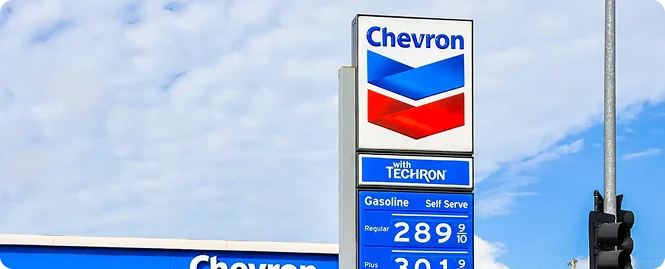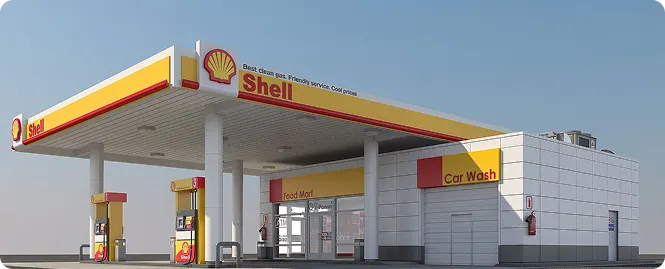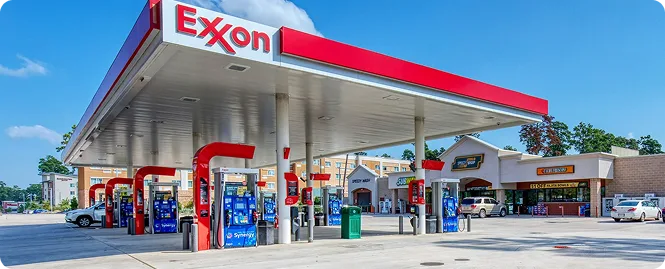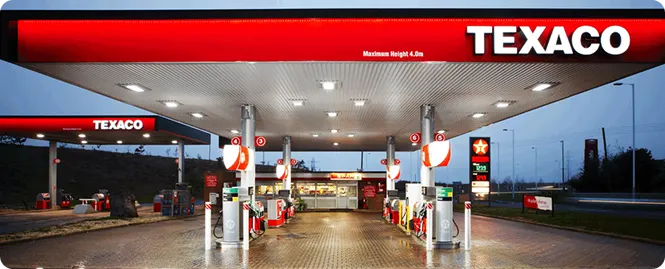Which Gas Station Has the Best Quality Gas?
Table of Contents
Key Takeaways
-
Gasoline quality varies based on additives, refining processes, octane ratings, and potential contaminants like water and impurities. The source of crude oil also plays a role in determining fuel efficiency and engine performance.
-
Brands like Chevron, Shell, ExxonMobil, BP, and Texaco are recognized for selling Top Tier gasoline, which meets higher detergent and performance standards set by major automakers, including Mercedes-Benz, Stellantis, Toyota, and General Motors.
-
High-quality fuels contain detergents that help prevent carbon deposits in the combustion chamber, improving fuel economy and engine longevity. The Top Tier logo ensures the fuel meets industry standards.
-
Look for licensed Top Tier gas stations, check for clear fuel with no sediment, and avoid stations with inconsistent supply or water contamination issues. Consumer reviews also highlight the top-rated gas stations for quality.
-
Premium gas has a higher octane rating, which benefits high-performance engines. However, it may not be necessary for all vehicles unless your manufacturer requires it. Using premium fuel may not significantly impact performance.
Think of fuel as your car’s diet—feed it junk, and it won’t perform at its best. Getting high-quality gasoline keeps your engine clean, efficient, and running smoothly, while lower-quality fuel can lead to carbon buildup, poor fuel economy, and costly repairs. Top-rated gas stations offer Top-tier fuels with superior detergents that protect your engine. Choosing the right fuel is not just about filling up—instead, it’s about keeping your vehicle healthy for the long haul.
A common myth? Gas is gas. But just like coffee, there’s a big difference between premium and watered-down blends. Refining methods, additives, and octane ratings all have an effect on the fuel’s performance. While most stations meet basic standards, Top Tier gasoline goes the extra mile with detergents that prevent buildup in your combustion chamber. That’s why automakers like Mercedes-Benz, Toyota, Stellantis, and General Motors recommend fueling up at stations that sell Top Tier fuel.
What Makes Gasoline Quality Different?
Not all fuel is created equal—differences in refining, additives, octane ratings, and contamination impact performance. Factors separating average fuel from Top Tier quality go beyond just price and branding; here are a few:
Additives and Detergents
Think of fuel additives like vitamins for your engine—they keep things running smoothly. Top Tier gasoline contains detergents that prevent carbon deposits, improving fuel economy and performance. Without them, buildup in the combustion chamber can lead to knocking, sluggish acceleration, and costly repairs. Quality fuel keeps the engines clean for a longer time.
Fuel Refining Process
Gasoline doesn’t come straight from the ground—it goes through a complex refining process to remove impurities and optimize performance. Factors like distillation, cracking, and blending determine fuel quality. Higher-grade refining produces cleaner-burning fuel with fewer contaminants, ensuring better engine efficiency and reduced emissions. Not all refineries prioritize fuel quality equally.
Octane Rating
Octane rating isn’t just a number at the pump—it measures a fuel’s ability to resist engine knocking. Higher octane fuels help high-performance engines run smoothly, but for most cars, regular works just fine. Using the right octane improves fuel efficiency, prevents premature ignition, and maintains optimal engine health over time.
Water and Impurities in Fuel
Water and fuel don’t mix—literally. Contaminants like moisture, sediment, and rust can find their way into fuel tanks, leading to engine misfires, stalling, and poor combustion. Quality fuel stations use strict filtration systems to prevent contamination. Choosing trusted brands reduces the risk of filling up with dirty or watered-down gasoline.
Source of the Crude Oil
Not all crude oil is the same—its origin affects refining quality and final fuel performance. Lighter, sweeter crude requires less processing, resulting in cleaner-burning gasoline. Heavier crude, often with higher sulfur content, demands more refining and potentially impacts fuel purity. The quality of your fuel affects the performance of your car.
Top Gas Stations Known for High-Quality Fuel
Chevron
Chevron has built up a reputation as one of the best-quality gas stations. It is known for delivering Top Tier gasoline that enhances engine performance while providing longevity. With a commitment to fuel quality and innovation, Chevron consistently meets the highest standards, making it a trusted choice for drivers worldwide.
Chevron’s Techron® additive sets it apart from other providers by actively cleaning carbon deposits from the engine’s combustion chamber. Unlike standard detergents, Techron® not only prevents buildup but also improves fuel economy and emissions performance. This proprietary formula helps the engines run smoother, longer, and more efficiently with every fill-up.

Shell
Shell is known for providing premium gasoline that enhances engine efficiency, performance, and longevity. With a strong focus on innovation and sustainability, Shell fuels are designed to keep engines running cleaner while reducing emissions. Their commitment to quality and advanced technology makes them a trusted choice for millions of drivers.
Shell’s Nitrogen Enriched Cleaning Technology actively prevents carbon buildup in critical engine components like fuel injectors, intake valves, and combustion chambers. Unlike standard gasoline, this additive helps maintain optimal engine performance and fuel economy over time. Shell’s unique formula ensures a smoother drive, fewer deposits, and improved overall vehicle efficiency.

ExxonMobil
ExxonMobil has earned a strong reputation for delivering high-quality fuel that enhances engine performance, efficiency, and durability. Focusing on advanced fuel technology, ExxonMobil stations provide gasoline developed to reduce engine wear, improve combustion, and support better mileage. Their commitment to innovation makes them a go-to choice for many drivers.
ExxonMobil’s Synergy™ fuel technology contains a unique blend of detergents and friction modifiers that goes beyond basic cleaning. Unlike standard gasoline, Synergy™ helps minimize carbon buildup in your engine, improve fuel economy, and optimize the engine’s responsiveness. The result? A cleaner engine, smoother performance, and long-term protection for your vehicle.

BP (British Petroleum)
British Petroleum is a well-known name in the fuel industry, offering high-quality gasoline created to enhance engine performance and overall efficiency. With a strong emphasis on clean energy and innovation, BP fuels help reduce engine deposits and emissions while promoting smoother acceleration and better mileage for drivers around the world.
BP’s Invigorate® additive is formulated to fight carbon buildup and keep engines running like new. Unlike conventional fuel, Invigorate® works to clean vital engine components, prevent corrosion, and improve fuel economy over time. This advanced formula helps maintain optimal power and efficiency, ensuring a better driving experience with every fill-up.
.webp)
Texaco
Texaco has a long-standing reputation for providing high-quality gasoline that supports engine efficiency, longevity, and power. Known for its commitment to fuel innovation and performance, Texaco gasoline is designed to help vehicles run smoother, cleaner, and more efficiently, making it a trusted choice for drivers around the globe seeking reliability.
Texaco’s Techron® additive goes beyond the levels of basic detergents, actively cleaning intake valves, fuel injectors, and combustion chambers in order to prevent harmful carbon deposits. Unlike ordinary gasoline, Techron® enhances fuel economy, reduces emissions, and improves engine responsiveness, further ensuring better acceleration and long-term engine protection with every tank.

Understanding Fuel Additives and Their Impact
Premium gasoline contains specialized additives such as detergents, corrosion inhibitors, and friction modifiers that help keep engines running smoothly. These additives prevent carbon buildup, reduce wear on engine components, and enhance overall combustion efficiency. By maintaining a cleaner engine, premium fuel helps extend vehicle lifespan and optimize performance over time.
These additives help in boosting fuel efficiency by ensuring a more complete burn, reducing wasted fuel. They also help minimize engine knock, a damaging condition caused by premature combustion. By using high-quality additives, premium gas provides smoother acceleration, improved mileage, and better long-term engine reliability, making it a smart investment.
How to Identify Good Quality Gasoline?
Not all gasoline is equal—some keep your engine running clean, others leave behind gunk. Look for gas stations with the Top Tier gasoline logo, ensuring you get top-quality fuel. This certification, backed by automakers like General Motors, Toyota, and Mercedes-Benz, guarantees higher detergent levels, preventing carbon buildup and improving engine performance.
Your vehicle’s fuel needs depend on its engine design. Regular gas is fine for most cars, mid-grade offers a slight boost in performance, and premium is essential for high-compression or turbocharged engines to prevent engine knock. Always check your owner’s manual—paying extra for premium unnecessarily won’t really do much good.
The Effect of Fuel Quality on Your Vehicle
Using higher-quality gasoline isn’t just about a smoother ride—in reality, it helps extend engine life, improves fuel economy, and reduces maintenance costs over time. With fewer impurities and better detergents, high-quality fuel keeps fuel injectors and combustion chambers clean, ensuring your engine runs efficiently and lasts longer with fewer repairs.
Cheap, low-quality fuel might save you money at the pump but can cost you in the long run. Poor fuel can lead to carbon buildup, clogged fuel injectors, and even engine knocking, reducing performance and increasing wear. Over time, these issues can lead to expensive repairs and decreased fuel efficiency.
Is Premium Gas Worth the Extra Cost?
Paying extra for premium gasoline might seem like a smart move, but for most vehicles, it’s actually unnecessary. Unless your car requires high-octane fuel, regular gas will do just fine. Premium fuel offers benefits like cleaner combustion and reduced knocking, but the added cost won’t improve performance for standard engines.
Some engines are built differently—turbocharged, high-performance, and high-compression engines actually need premium gas to prevent engine knock and optimize power. Luxury and sports cars, as well as certain Mercedes-Benz, BMW, and Audi models, are designed for high-octane fuel. If your owner’s manual says premium is required, it’s worth the investment.
Consumer Reviews and Experiences
Drivers swear by Chevron, Shell, ExxonMobil, BP, and Texaco for consistently high-quality fuel. Many praise these brands for their additive technology, which helps improve fuel economy and engine longevity. Consumer reviews typically highlight smoother performance, fewer carbon deposits, and better mileage, making these stations the go-to choice for Top Tier fuel.
Gas station quality varies according to region. Chevron and Shell dominate the West Coast, while BP and ExxonMobil are preferred in the Midwest and East Coast. Some states have stricter fuel regulations, leading to better overall quality. The availability of Top-Tier-Certified stations also plays a role in regional fuel preferences.
Conclusion
The fuel you choose has a direct impact on your car’s engine health, efficiency, and lifespan. High-quality gas stations provide cleaner fuel with advanced additives that help prevent carbon buildup and improve combustion. Opting for reputable brands ensures fewer maintenance issues and a smoother driving experience in the long run.
Not all engines have the same fuel requirements, so checking your owner’s manual is key. While some vehicles benefit from premium gasoline, others run just as well on regular. Prioritizing stations with certified fuel and strong consumer reviews helps avoid low-quality gas, which leads to engine deposits and reduced performance.
Running a gas station comes with its own set of risks, from theft and property damage to liability claims. Without proper insurance, a single incident could lead to major financial setbacks. A well-structured business insurance policy helps owners stay protected against unexpected losses, keeping their operations secure and running smoothly.

